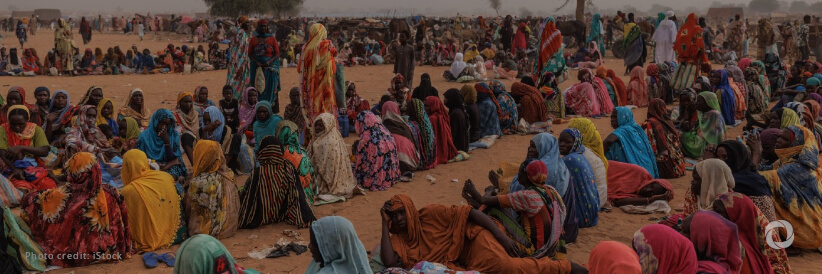An escalation of attacks and fighting is making it impossible for Doctors Without Borders/Médecins Sans Frontières (MSF) to continue providing medical assistance in Zamzam camp for displaced people near El Fasher in North Darfur, Sudan.
Despite widespread starvation and immense humanitarian needs, we have no choice but to suspend all our activities in the camp, including the MSF field hospital.
The fighting has been taking place in and around Zamzam camp in recent weeks. Since the beginning of February, our teams in Zamzam have received 139 wounded patients at the MSF field hospital, most suffering from gunshot wounds and shrapnel injuries. The MSF facility in Zamzam is designed to help tackle the massive malnutrition crisis unfolding in the camp, which is experiencing the conditions of famine, according to the Integrated Food Security Phase Classification last year. The facility cannot provide trauma surgery for people in critical condition.
“Eleven patients died in the MSF hospital, five of them children because we could neither treat them properly nor refer them to Saudi Hospital, the only facility with surgical capacity in nearby El Fasher,” said Yahya Kalilah, MSF head of mission in Sudan. “In January and December, two of our ambulances carrying patients from the camp to El Fasher were shot at. Now it’s even more dangerous and as a result, many people, including patients requiring trauma surgery or emergency cesarean section, are trapped in Zamzam.”
“A heartbreaking decision” amid a worsening disaster
The area has seen heavy fighting between the Rapid Support Forces (RSF) and the Joint Forces, a coalition of armed groups allied with Sudanese armed forces. RSF has been besieging and shelling the town of El Fasher for the last 10 months. They have stepped up their offensive in recent weeks, including by launching attacks against the Zamzam camp, in particular on February 11 and 12. People who were already struggling to survive now find their access to water and food even more compromised, as the central market has been looted and burnt down.
“Halting our project amid a worsening disaster in Zamzam is a heartbreaking decision,” added Kalilah. “For more than two years, our teams did their utmost to provide care against all odds, despite the siege, supply shortages, and multiple other challenges, calling and waiting for a scaled-up humanitarian response which never materialized. However, as the battle for El Fasher rages on and now directly reaches Zamzam camp, the most minimal security conditions are currently not present for us to stay. The sheer proximity of the violence, great difficulties in sending supplies, the impossibility of sending experienced staff for adequate support, and uncertainty regarding routes out of the camp for our colleagues and civilians leave us with little choice.”
Hosting about 500,000 people, Zamzam camp has seen new arrivals fleeing from Abu Zerega, Shagra, and Saluma, who are staying in schools, community buildings, or under the trees in the open. They have told our teams of dwellings set on fire, looting, sexual violence, killings, beatings, and other abuses in villages and roads in the El Fasher locality. About a hundred families have also reached Tawila, in some cases barefoot, after leaving everything behind and escaping horrific violence on their way.

